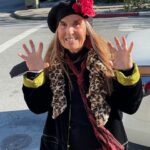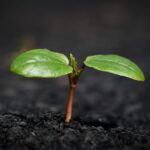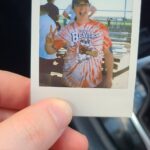Number Eight
I’m eight,
and this may be my favorite number,
I think to myself.
My maternal grandma knocks
on the door of the bathroom,
“Sweetie, come along; we’ll be late.”
At twenty-eight,
I became a naturalized US citizen.
Eight months later
my mom received her green card.
After eight weeks of planning and packing,
to visit my sweet nana in the upcoming summer,
it will be nearly eighteen years
for mom since she last saw her mother…
But then, we receive the news:
“Your grandma has passed away; I’m sorry.”
I freeze.
Everything grows unmoving and quiet,
like the Dead Sea, in which
I was floating only last year
at this time of the year.
After a moment of quiet stillness,
the salty tears come pouring out of my eyes,
enough to form two more seas.
Eight is now my least favorite number.

















